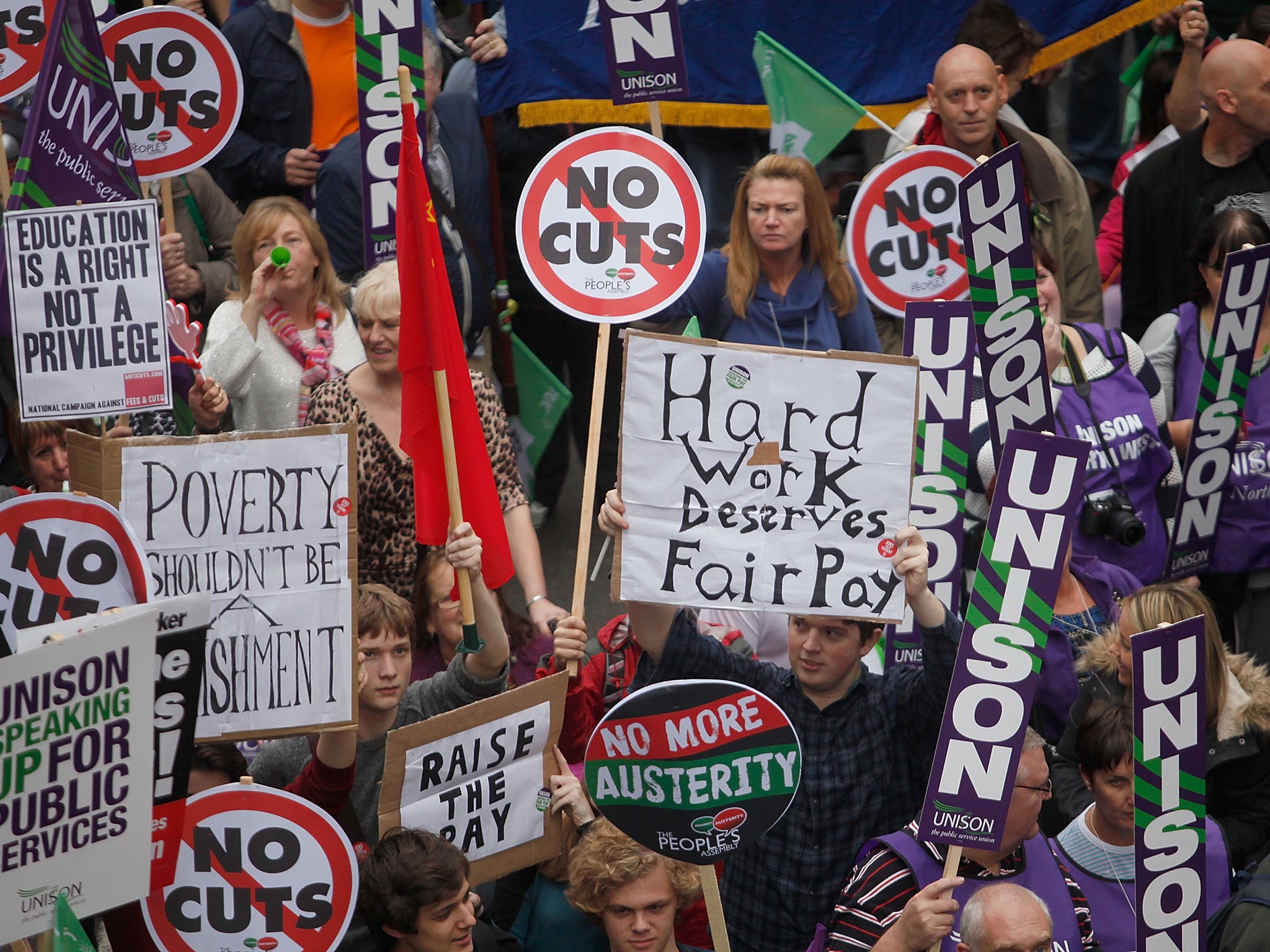The Tory stance on the national living wage is way past its sell-by date
Another debate about pay and another conservative think tank claiming raising it will cost jobs – despite mounds of evidence showing otherwise, writes James Moore


Raising the national living wage would cost jobs and disadvantage young workers.” So declared the Centre for Policy Studies, and if you were wondering how long it would take the right to take aim at workers’ pay your answer is no time at all.
The favourite think tank of Tory MPs has taken note of the fact that the pandemic has led to a rise in unemployment, partly as a result of Rishi Sunak’s slow footedness in extending the job retention, or furlough, scheme, which is now slated to remain open until 31 March.
This has opened the door for it to table a wearily familiar argument: that minimum wages cost jobs.
You’d have thought Britain was setting itself up for a jobs apocalypse when the Blair government first introduced the thing, to listen to some commentators at the time. Others urged ministers to keep it low, low, low because otherwise… well you know the drill.
Despite the fact that employment rates remained far higher in the years following its introduction than they had been previously, the same drum has banged just about every time the minimum wage, which the government these days somewhat mendaciously describes as the “national living wage” (NLW), has been increased.
There being a notable lack of evidence to back the argument up, the Tory Party eventually became a convert to the cause of raising the pay of low waged workers, partly out of a desire to reduce the amount of money the state pays to subsidise them.
The government commissioned Professor Arindrajit Dube of the University of Massachusetts, who is internationally known for his work in the field, to look at the impact of minimum wages on employment with a view to informing its future policy.
The report he submitted said that “a large body of high-quality research" had investigated it, concluding “overall, this body of evidence points to a relatively modest overall impact on low wage employment to date”.
He continued: “Across US states, the best evidence suggests that the employment effects are small – up to around 59 per cent of the median wage. Evidence using sub-state county-level variation found this to hold even in lower wage counties where the minimum stood at up to 81 per cent of the median wage.
“Research conducted for this report also finds that in the seven US states with the highest minimum wage, where the minimum is binding for around 17 per cent of the workforce, employment effects have been similarly modest.”
As a result, he said: “There is room for exploring a more ambitious NLW remit in the UK in the coming years, in the range of 60 per cent to two-thirds of median hourly earnings.”
It’s worth reflecting that higher unemployment tends to depress wages across the board (except at the very top which is an issue I will address in a future column). This will likely serve to reduce the median which the minimum or national living wage will be set at a percentage of.
It’s also worth paying attention to what’s happened with the real living wage, the one set by the Living Wage Foundation which is based on the actual cost of living. It was raised last week to £9.50 in the UK outside London, £10.85 in the capital.
Some 250,000 workers are now covered, according to the foundation, compared with just 5,000 in 2012. That represents a stunning success for the campaign.
I understand that there was privately some concern that the pandemic might lead to a drop off. Yet in excess of 800 more employers have voluntarily committed to becoming living wage employers since its start.
Why is that? The employers I’ve spoken to tell me that it makes economic sense. The real living wage reduces the cost of recruitment (and getting new hires up to speed) because workers on it are less likely to leave in search of better pay. Their productivity and the quality of their work is better. Absence rates are lower.
The number of people on it may actually be much bigger than the foundation’s figures suggest. The Resolution Foundation estimates that there were 190,000 more workers being paid it in 2019 than it would otherwise have expected through employers which don’t have accreditation “shadowing” it.
When the government announced its plan to follow Professor Dube’s prescription by raising the UK minimum wage, it left the door ajar to a change of tack by making the plans contingent on continued economic growth.
That has given the CPS, and others, their chance. The think tank sought to buttress its case by pointing to the plight of sectors worst-hit by the coronavirus - hospitality, retail, social care. These, it said, are employers “where the increased employment costs of a higher minimum wage are most likely to be felt”.
But as TUC director general France O’Grade said to me: ”If ministers want to support business they need to invest in creating good new jobs and in extra help for the hardest-hit industries – not on holding down the wages of low paid workers.”
They’ll end up subsidising low wages anyway so surely her road is the better one down which to travel, rather than heeding a tired old argument that is refuted by academic research and was past its sell-by date two decades ago.
She also raised the issue of fairness. We shouldn’t forget that either.



Join our commenting forum
Join thought-provoking conversations, follow other Independent readers and see their replies
Comments